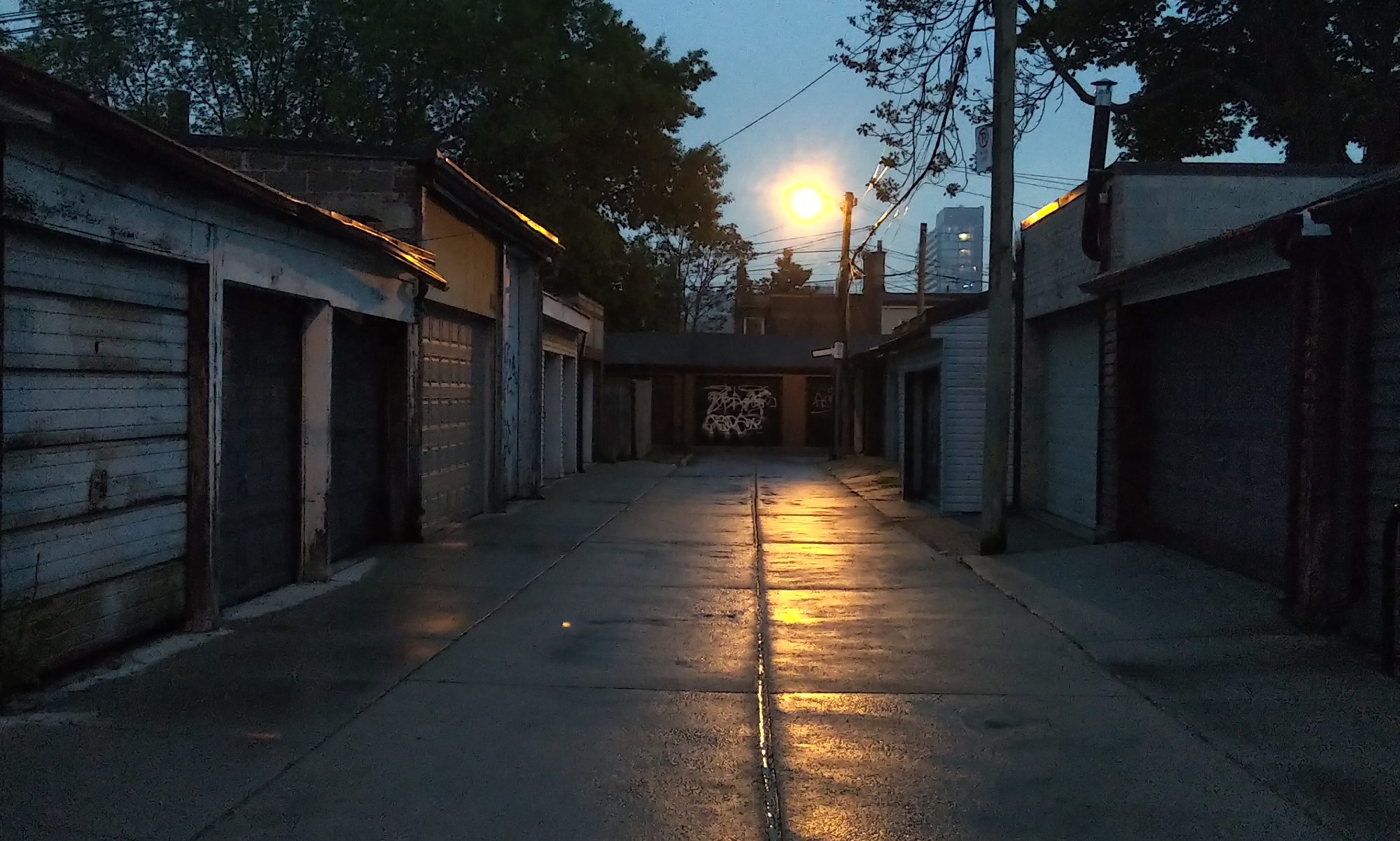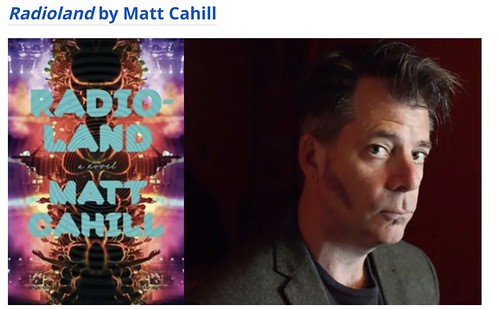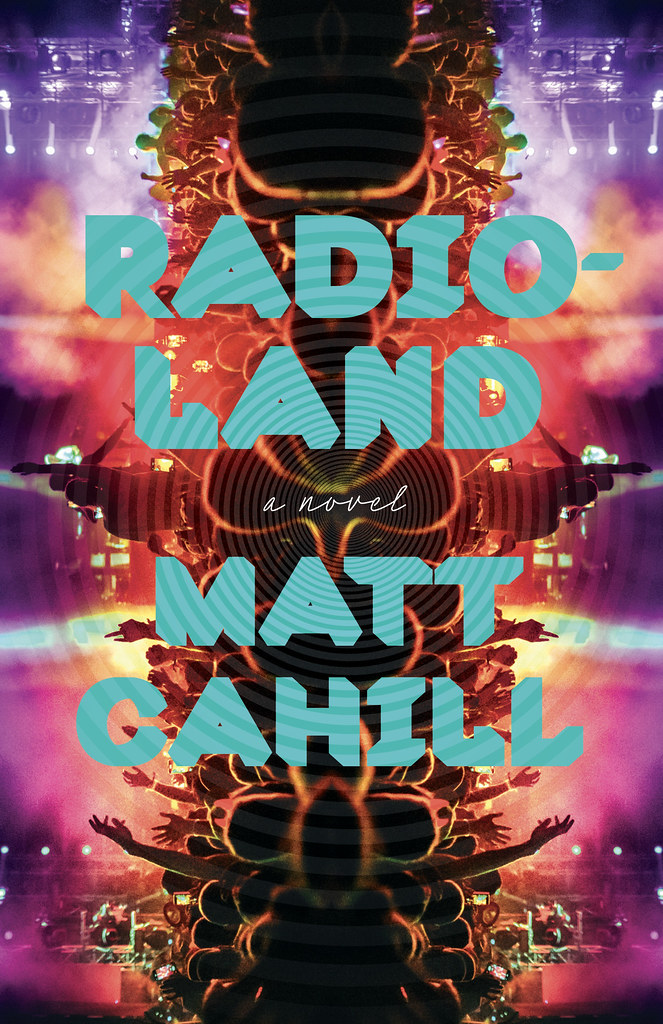As of August 2nd, it will have been nine months since the official launch of my second novel, Radioland. I wanted to reflect, if non-linearly, on how things have gone. And yeah, I get that “nine months” is a fairly loaded measurement of time. Fact is, I could’ve written this months ago, but time is my enemy.

- I will always (and I mean that literally) be thankful for the opportunity to have my work published, especially in novel form. The format takes a lot of time and energy. Time from my life. Energy from my life. Not only am I thankful that those sacrifices were not in vain, but that my publisher (and acquiring editor) took this particular book on. Call it what you will or want — psychological thriller (a descriptor my publisher chose that I’m sometimes uncomfortable with), weird fiction, urban fantasy, or simply “literary fiction” — this isn’t an airport book (ie easy to read, not exactly challenging or demanding on the reader).
2. Unlike my experiences with the publication of The Society of Experience, which went so smoothly that I stand in awe of it, with Radioland every step of the way was difficult. Not only was I tasked with promoting a complex, multi-threaded tale in the sort of limelight I didn’t have for The Society of Experience, the more I tried to summarize it into an elevator pitch for radio and podcast interviews, the less I believed it (or felt I was doing the book justice). From an investment standpoint, my publisher choosing psychological thriller makes sense in that it at least gives the potential reader a rough idea of what’s inside. It’s certainly better than literary fiction which can mean anything to those who don’t discern or care whether they’re reading Jo Nesbø or Eudora Welty. As thankful as I was for the opportunities, it still felt as if I was peddling some vague literary fiction, especially given that the vast majority of those I spoke with didn’t have time to read the fucking book (this, I understand, is par for the course), leaving me to build a scaffolding of sense about it while they prod me with the same goddamn questions gleaned from our PR person’s one sheet (“So, this is a psychological thriller. Could you tell us about that?” “What’s it like writing about Toronto?”). I would’ve killed for someone to have asked about its darkness, its weirdness, its splitting the world into the real and unreal and how both of those worlds are in internal conflict. At least my chat with Jamie Tennant included realtalk about music, given that a) he actually read the book, and b) he’s a musician. The strange, flattening, surreal experience of trying to get word out about a novel in ways much more wide and far-reaching than The Society of Experience and yet walking away not knowing whether anyone listening had any better a clue about what it was that was being presented.
3. The pants-down ridiculousness of University of Toronto Press Distribution not anticipating that lower / less consistent orders from independent publishers and bookstores (this coming after the lockdowns of the pandemic) would cause their internal algorithm to go ¯\_(ツ)_/¯ just as publishing’s fall season was unrolling in anticipation of the Christmas buying season. This meant that my book wasn’t in stores when people expected it to be. I was marathon-publicizing a book (see #2) that no one was able to buy in the city of Toronto. Oh, but they could buy it in Ancaster. I was interviewed about it here, but there’s a paywall (that said, Steven’s site is worth the $5/month). Here’s an excerpt:
One affected author is Matt Cahill, whose second novel, Radioland, published on October 18. His book is still not in stores in his home town of Toronto, and some stores are not even sure when they will receive supply of the title. “As an author I bust my ass to revise and make deadlines; the editorial and layout staff are busting their asses; the publisher has paid an advance to me and is overseeing the printing schedule; bookstores are preparing to stock their shelves for the upcoming season; readers are creating their Christmas lists; preorders have been prepaid,” Cahill says. “And all of this comes to a crashing halt for reasons that don’t sound unforeseeable.”
4. Oh, and then there were the book reviews. I’m not going to go into thoughts about Goodreads (note: please feel free to leave a review there if you wish), but rather reviews written by people whose role is to actually review books. Now, I know that reviews aren’t aimed at the author (and their ego) but rather intended to help readers sort through new releases, etc, and it’s always good to come back to this. But there are so few outlets left in this country (forget about getting a review in another country for a there-unknown Canadian author) that each one seems to have more gravitas than before. Add to this that a review of one’s work can be just a little stressful in the first place. Add to this that a review posted online anywhere is 100% better than nothing nowhere. Radioland received a couple of glowing reviews from the Ampersand Review and The Minerva Reader which I deeply appreciate. It also got a couple of mixed reviews elsewhere, which I find issues with, but it would feel neurotic/insecure to post my feelings here. I should note that The Society of Experience had no reviews. Nix. And there’s something about this that illustrates the deal you make as a published author: you want exposure? Ok — oh, but you don’t get much say in how it happens. It is, as they say, what it is.
5. I’m gladdened by the unwavering support I’ve experienced from loved ones, friends, family and complete strangers. Despite my own anxiety, despite the fuck-ups with the distribution, despite it not being an airport book, despite the ebook coming out months after the paperback’s publication, many people indulged themselves in my work, which is very gratifying (<- understatement). It’s good to remind myself of this, especially as the seasons cycle and the latest “hot book” takes up all the oxygen, and the opportunities for me to publicly promote Radioland become less and less. It’s also good to remind myself of all the people who helped get Radioland into Toronto Public Library, most of whom I don’t know.
6. What is success as a literary writer? I can tell you that I don’t want to be famous. I don’t want people to recognize me on the street (though this *sometimes* happens, especially in Kensington Market where I used to live). If “Matt Cahill” is just a name people associate with my writing but not me as a person I’m ok with that. Would I love it if my book sold thousands of copies (thus supporting bookstores, my publisher and me)? Sure thing! But that’s not very realistic in the smaller market of literary fiction. So, success… I think success is reaching a broad spectrum of readers. Art doesn’t exist without an audience. I don’t know how much Radioland has sold — and, like external reviews, maybe it’s best I don’t inquire too much — and I won’t know until year’s end. I still don’t know how my weird tale of two people trying to find connection in a city almost designed to thwart them is going to land with readers. That said, the arrow has left the bow. I’ve done all I can on this one.
The one person who has been through all this with me is my partner, Ingrid. Without her support, her ear and her perspective, I’d likely set fire to all this years ago. I’d also like to thank you, dear reader, for giving me time to open up a little here, warts and all.






